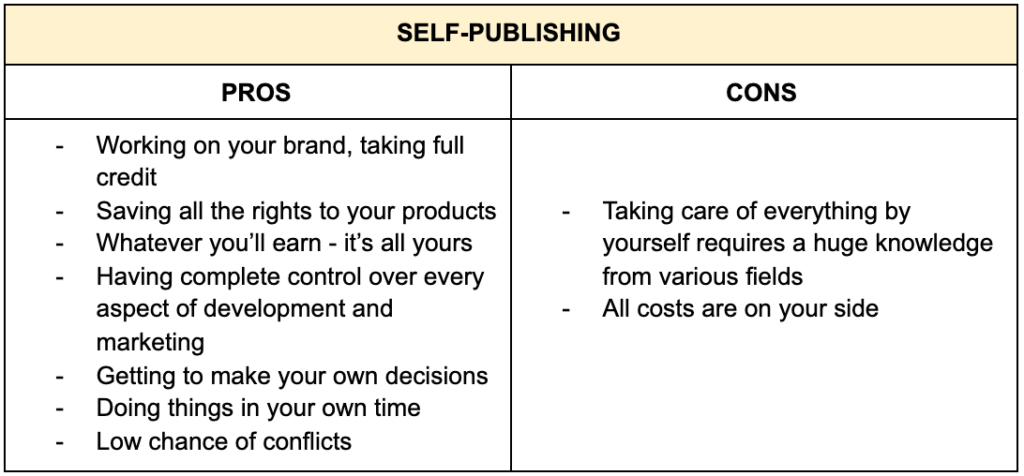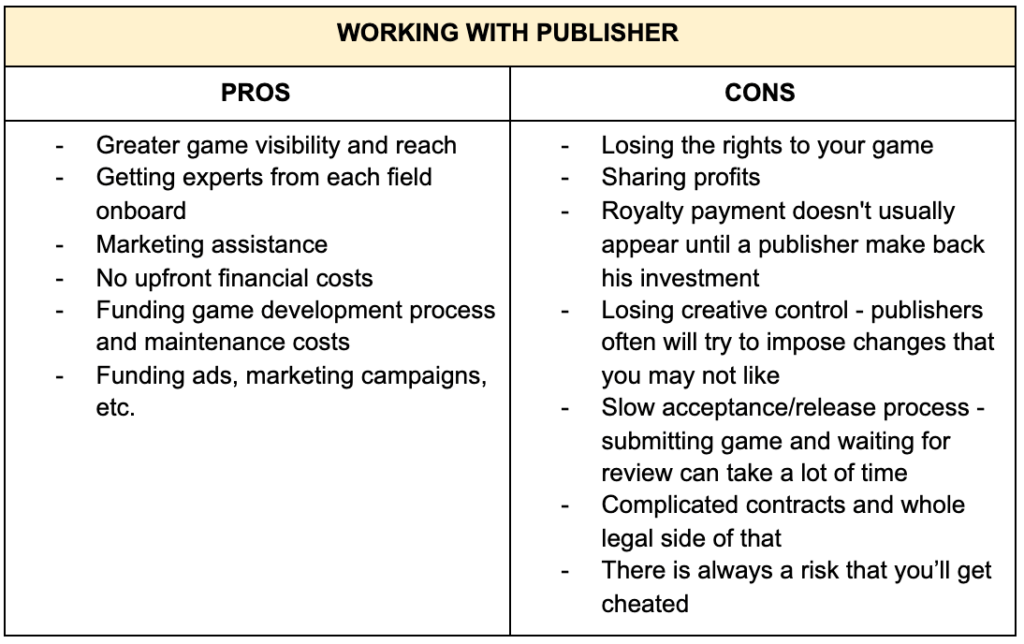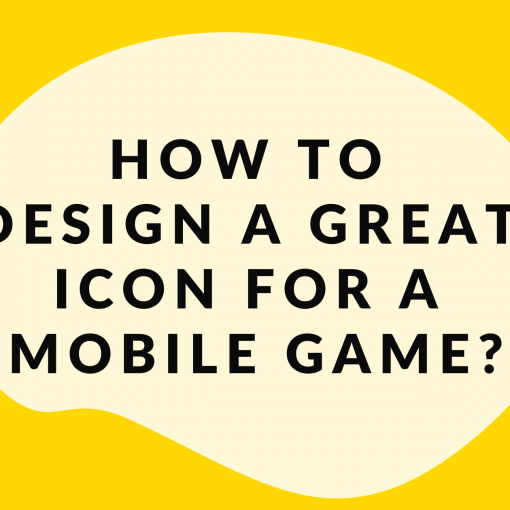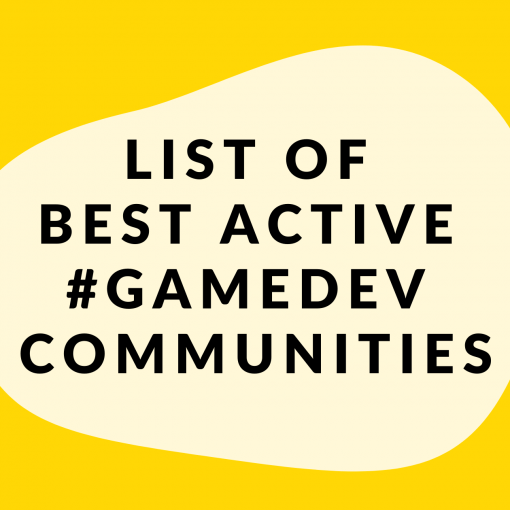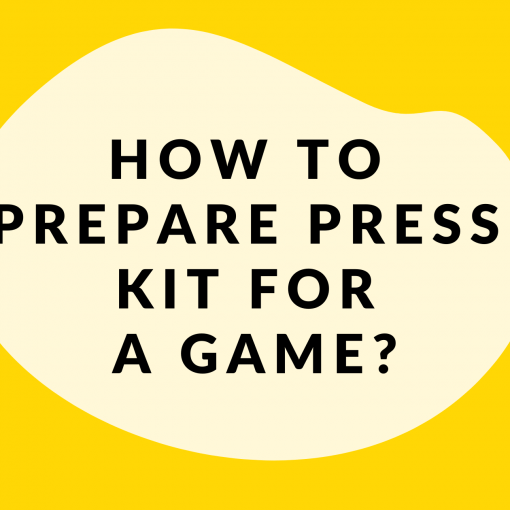Self-publishing games vs working with a publisher is a big decision to make. You can work solo and publish games by yourself or use publishers’ help. Both solutions have their pros and cons and deciding which one to choose may not be easy. To help you with that, we prepared this quick summary. Take a look and we’re sure you’ll decide well – after all, you know what’s the best for your game/business.
Who are the publishers?
Publishers are involved in many things, mainly in releasing games. For them, more important than game uniqueness is how well a game will sell and how much money it will make. But does it mean that a game shouldn’t be unique? No. It is said that it’s good to give them something innovative and unique, but not too unique; something exciting but also practical.
Publishers can help you with turning your game into a profitable business. They often give significant financial support which can have a huge impact on your games’ growth. You can work with a publisher from the start or submit a ready version of a game you would like to publish with them. Publishers also often take over games that have already been published.
In most cases, you need to know precisely what kind of games a publisher wants. So before submitting a game do thorough research and find out what games each publisher prefers. Check their website, social media channels and, if available, read the marketing deck. All of that will help you to prepare a good brief. Don’t send puzzle game to a publisher who publishes only hyper-casual games. It’s very likely that it will result in rejection. While submitting an already finished game, send it with features that publishers probably would want. As for already published games – show them the numbers (like ROI, CPC or CPI, retention, engagement).
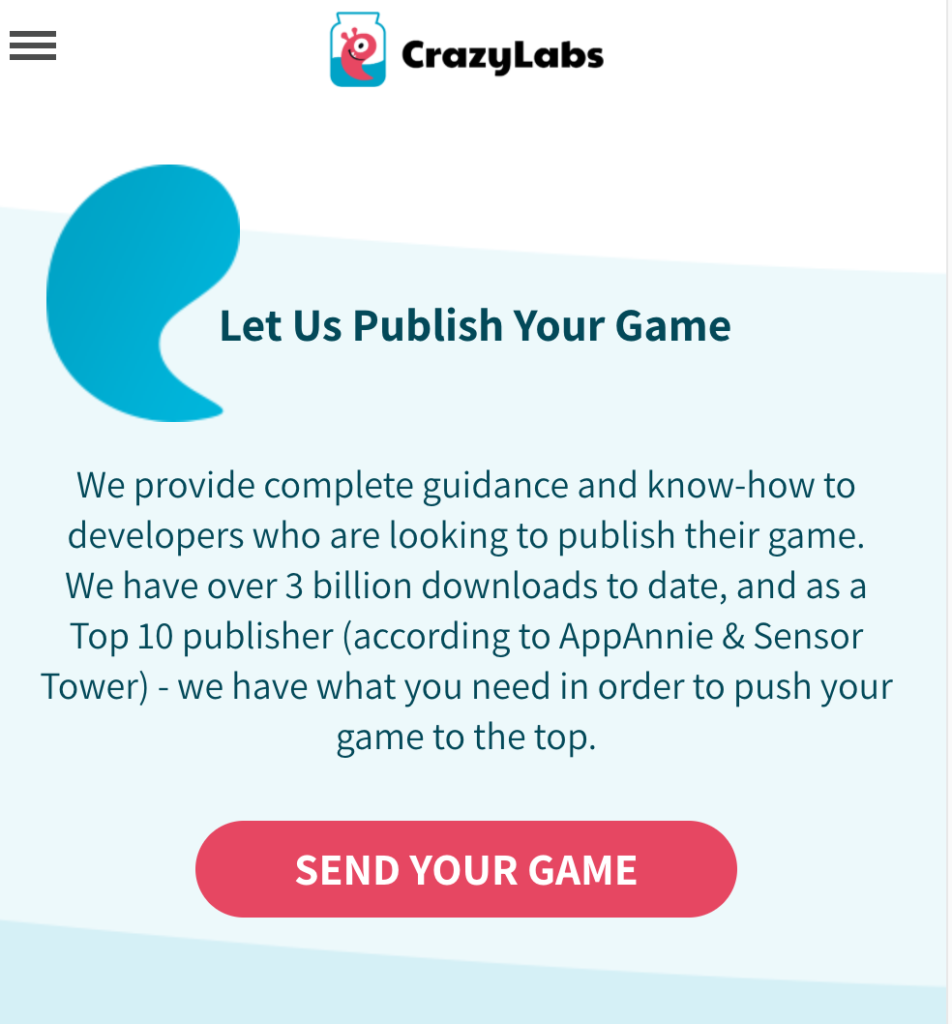
Self-publishing games vs working with a publisher
Before you will choose, take a look at some of the pros and cons of self-publishing and with publishers:
How to contact publishers?
Still interested in working with publishers? So now you need to contact them. Your best and easiest option is to use a contact form that can be found on their website. While contacting don’t be too pushy. Don’t send too many messages – one about once for two months should be ok. And don’t insist on meetings – if they see the potential and possibility of cooperation, they will make a move and set an appointment with you. Communication is the key so don’t ruin it at the beginning. Ask for feedback in case of rejection – it won’t hurt and even if they won’t choose your game, but they will answer you back, you’ll know what to improve next time.
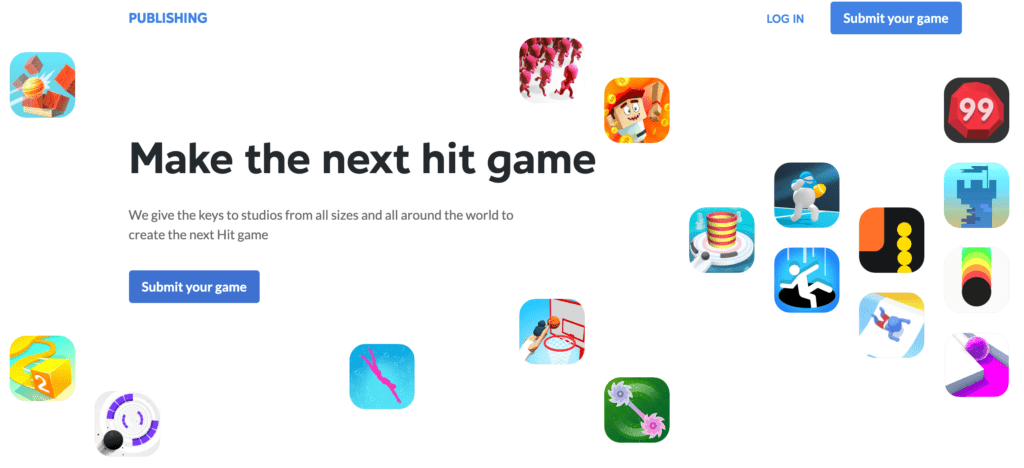
What to look at before considering signing an agreement?
The publisher-developer relationship is a partnership. It’s a two-sided deal and should be mutually beneficial. Be sure you walk into negotiations knowing exactly what you want out of the partnership. Here are some aspects to keep in mind:
- Who will be the owner of the game?
- Revenue sharing – how revenue is split?
- What does a payment schedule look like?
- What exactly a publisher will do, what will be his responsibilities?
- In what cases we can finish the collaboration?
- How will I be able to get back control of my game?
- Will the publisher take care of marketing aspects?
- Does the publisher support multi-platform releases?
- What are relationships with distributors such as Play Store/Steam/Switch/App Store?
- Will the publisher offer financing ie. for User Acquisition, marketing, development?
- How long will the publisher support a game post-launch?
- What will the publisher do regarding promotion after game release?
- How often will we be in contact during our cooperation?
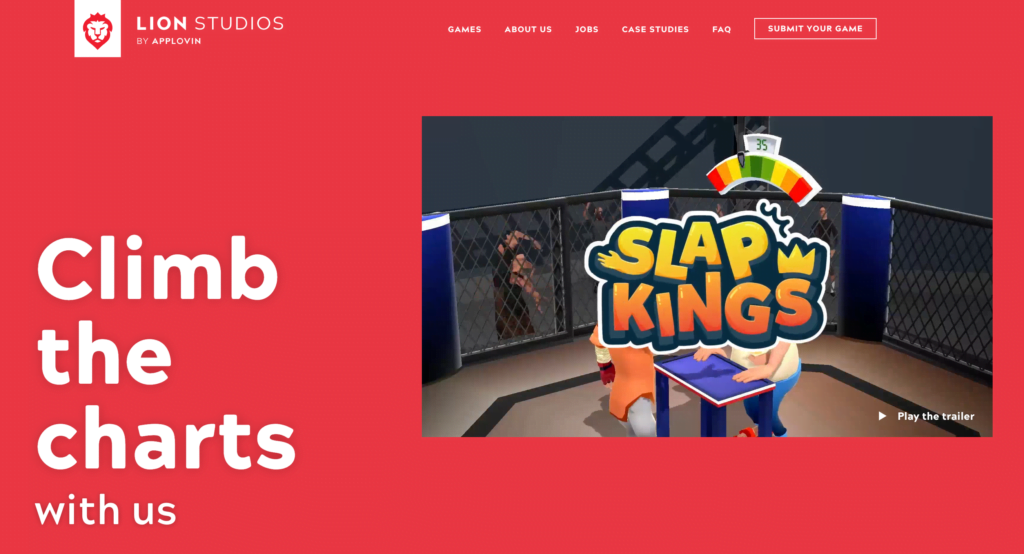
Examples of mobile games publishers
- Voodoo Games
- Lion Studios
- Crazy Labs
- Amanotes
- SayGames
- Rollic Games
- SuperSonic Studios
- Vivid Games
- Huuuge Publishing
- 11 Bit Studios
- Noodlecake Studios
- Ketchapp Games
Remember: you have to choose a good publisher for YOU.
Finally, take a look at the survey results we conducted on Twitter. We asked our community what they think about self-publishing games vs working with a publisher. Here’s what we’ve got:

